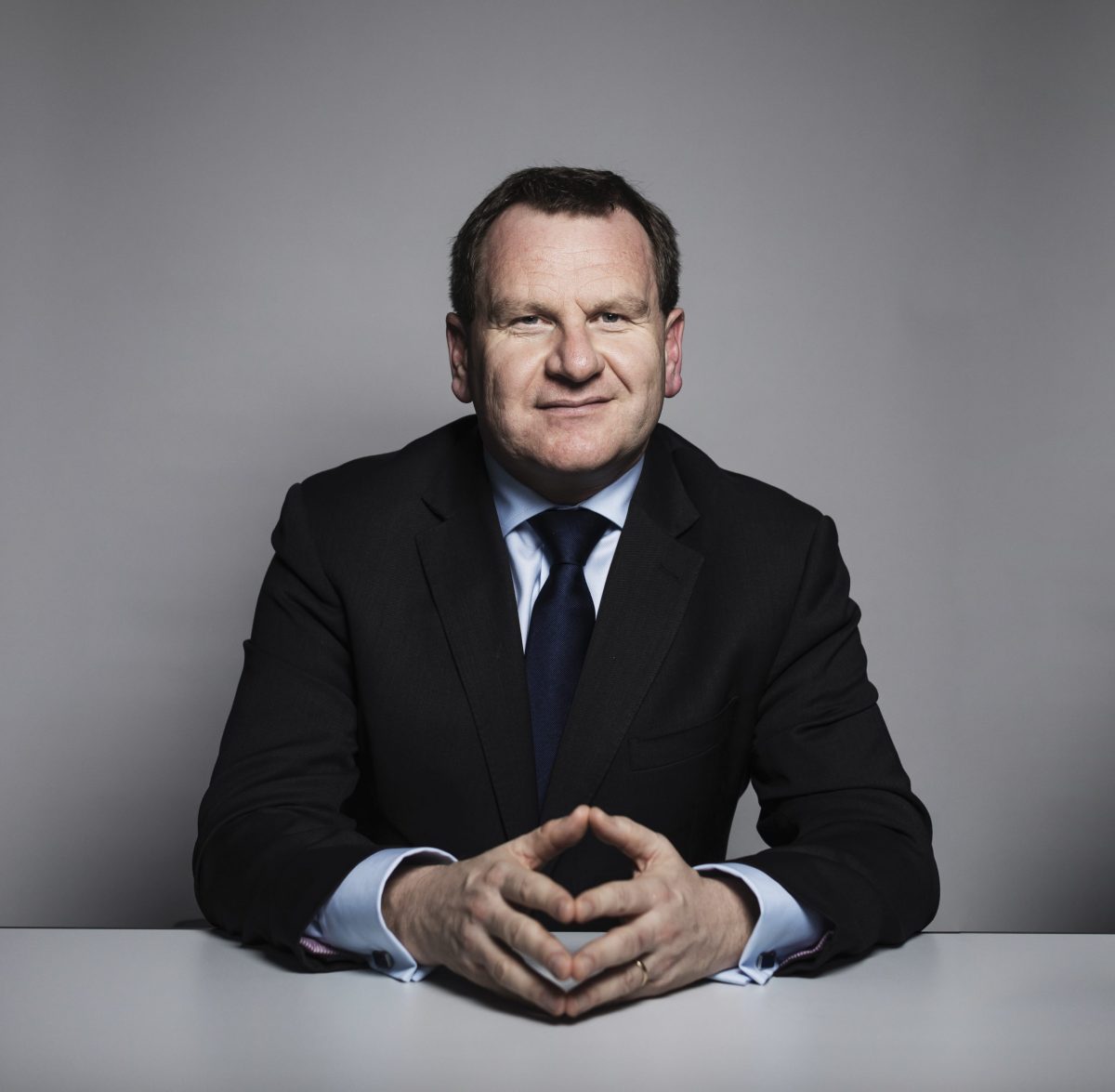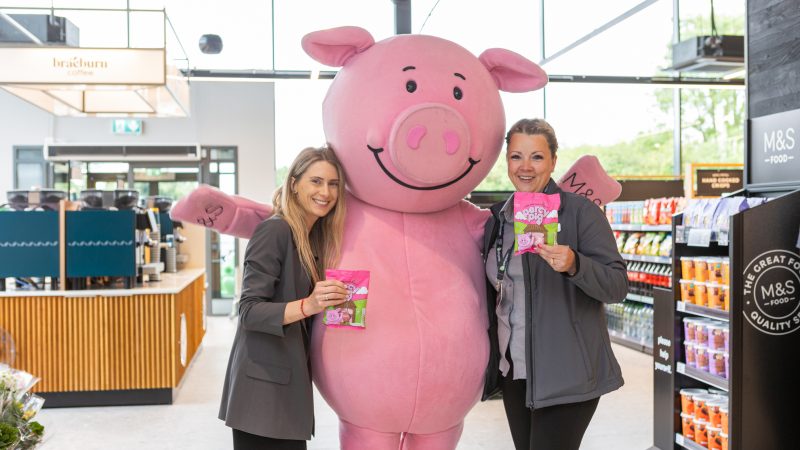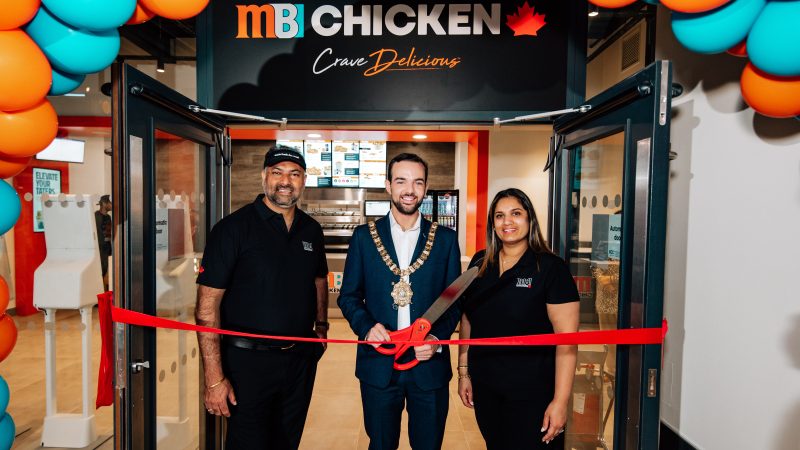Adapt, pivot and prosper: Interview with Ibec’s Danny McCoy

As chief executive of Ibec, Danny McCoy has been banging the drum for Irish business since 2009. During his tenure he’s seen the country recover from recession to build one of the best performing economies in the world. But, as he tells the Yearbook, there are plenty of challenges ahead and no resting on any laurels.
While Danny concedes that the start of 2022 was overshadowed by the continuing global pandemic “restricting the experience economy and dampening consumer confidence,” he is quick to point out that there are other major issues at play for companies plotting the course ahead.
“The bigger challenges facing businesses as they look beyond the improving public health situation across the Island of the Ireland involves factor of excess demand and constrained supply conditions,” he tells the Yearbook.
“The continuing fallout from Brexit and the re-emergence of inflation in prices and in turn wages is challenging the competitiveness of business.”
While Brexit may be causing headaches when it comes to supply chain and prices, there has been a substantial lift in trade between Northern Ireland, with cross-border business increasing in both directions.
The Central Statistics Office in Dublin reported that in the first nine months of 2021 imports from Northern Ireland surged by 60% to €2.8bn , with trade in the other direction also up by 48%, with a total value of trade of €2.57bn.
“Many of the teething issues with the Ireland/Northern Ireland Protocol are still to be resolved,” said Danny McCoy, “but it is clear that it is working as predictably intended in terms of trade channels diversion with greater cross border trade between North and South of the island.”
Ambitious targets
A more pressing issue for us all is saving the environment, with many companies now committing to ambitious carbon neutral targets on the back of COP26, goals which Danny says will be hard to achieve while keeping prices where consumers expect to see them.
He explained: “The challenge for businesses to meet carbon reduction targets whilst growing their activity is immense.
“The need to price environmental assets appropriately to reduce the climatic damage will rise energy costs in the short term. Coupled with the expansion of the global money supply these price rises are driving inflation rates to over 30-year highs.”
One price rise no-one can have failed to notice is fuel, with little chance of a “sharp reversal anytime soon,” according to Danny. However, with a plan to end new petrol and diesel engine car sales by 2030 there may be one upside.
“This will drive demand towards Electric Vehicles, but the demand might be limited by adequate networks of charging points to encourage EV use,” he added. “Governments have a role here to further incentivise this shift.”
Covid lessons
Companies have been forced to make many gear shifts since the emergence of Covid and while some have led to improvements, Ibec in conscious that the long-term impact of the pandemic has put many of the firms it seeks to help at risk.
“Covid has taught the business community many worthwhile lessons about the fragility of supply chains but also the capacity to flex to different outlets for work, like the switch from office to home, but also different channels of delivery,” explained Danny.
“These lessons should lead to improved productivity being embedded in time, but short-term dislocations and surging inflation may mean the negative impacts are more than just transitory.
“For retailers, the experience has been a significant sales bounce since last summer, due to pent up demand and additional saving but this has levelled off over recent months.
“There is confidence in this post-Christmas period and a stabilising public health backdrop that retail sales will have a strong 2022 driven by high disposable incomes supported by elevated savings over pandemic era.
“The primary focus of retailers is to ensure a safe shopping environment for staff and customers, though an immediate concern is staff being out sick and isolating. As a result, we are likely to see stores operating with reduced staff, and hopefully this won’t translate to closures. In any case, retailers will continue to ask public for their understanding as rationing is reaction to excess demand too as much as inflation.”
The flip side
But while some businesses may be flourishing, that’s far from a universal picture.
“Headline figures, of course, mask other trends in the sector and not all parts of retail are experiencing the same uplift as others,” Danny told the Yearbook.
“Grocery retail, for example, has seen sales increase significantly during the pandemic. People are eating more at home, while our town and city centres have been quiet.
“However, on the flip side, the lack of office workers and tourists, along with the extended closure of bars and restaurants, has seen footfall drop dramatically in key urban retail districts.
“This has been a problem in many cities, but Dublin and Belfast have been the worst affected. They are more reliant than others on commuters and foreign visitors, and while suburban shopping centres haven’t fared so badly, the city centre has taken a big hit.
“That trend was starting to correct itself by the end of October, but recent weeks have seen consumers again reduce their activity due to Covid concern. Reduced activity in the hospitality and events sector, spills over into retail and there are simply less shoppers around town.”
“Not only has Covid affected where people shop, it has also affected how people shop. Some of this is short-term, but other trends are probably here to stay.
“Visits to the city during the pandemic have been more purpose driven. Casual browsing has reduced considerably. This led to lower number of transactions in stores, although they were typically higher value. Those parts of retail that rely on more unplanned impulse buying have suffered accordingly.”
Rebuilding retail
When it comes to rebuilding trade for city-based retailers and the hospitality and experience trade that depend on a healthy footfall, Danny believes it will take more than simply fully reopening to do the trick.
“In the immediate term, the sustained opening and recovery of the city’s wider economy is needed to restore more normal levels of retail footfall to the city. Into the future, though, retailers and other city centre businesses will have to work harder to entice consumers back,” he explained.
“The acceleration of online retail and the increase in remote and hybrid working models demand a rethink of the offering, not just in retail, but across the city’s wider experience economy.
“It was always the case that Dublin city centre needed to develop and market itself as a destination retail and leisure experience, but this has taken on a new importance.
“There are some positive indications from the past 18 months, when retail reopening after Covid restrictions consumers were quick to return. A real value is placed on the in-person experience and the supporting amenities that only cities can offer, but we can’t be complacent.
“The city needs to not just deliver a great retail experience; it needs to be a great place to live and work – it’s all interconnected.
“An increasing dilemma for retailers is that EU workers that left during the pandemics are reluctant to return due to the high living costs. This is manifesting itself in skills shortages right across the sector.
“Better transports links, more imaginative open spaces, cleaner and safer streets, quality housing and reduced local charges for retailers and local businesses are some of the initiatives that will help realise the city’s potential.
“At the same time, Dublin and Belfast must continue to reinvent its offering to consumers wanting something more creative and inspiring than they can access locally.”
What to expect
So, what can consumers and businesses expect for the rest of 2022 and beyond?
“The global conditions are likely to get substantially tighter with central banks withdrawing the money pumped out over the last two and governments starting to withdraw the much-needed pandemic supports,” warns Danny.
“Inflation is likely to drop off current highs but settle at much higher elevated levels than experienced in a generation. Interest rates will rise significantly but actually return to much more normal levels pre-the Great Financial Recession over a decade ago.
“The simultaneous rise of interest rates and higher prices will impede the living standards of many segments of the population and is likely to find expression in street protests across the world.
“Politicians will prioritise living standards and will try to deliver on this by tackling soaring costs of living. The appetite in the short term to continue the much-needed emphases on a carbon transition may be dampened.
“The labour market has been particularly distorted by the pandemic. Some sectors have surged like technology and medical sciences whilst for travel and hospitality it has been disastrous.
“Participation in the labour force has been dropping, not so much in headcount but in terms of hours worked. Many are choosing for a multitude of reasons to work less, partly as a result of higher wages, higher savings and increase disposable income.
“Employment rates are high and the corollary unemployment rates are low. In a tight labour market, getting and retaining workers is the top concern amongst the business community.
Prospects for 2022
“The prospects for the coming year are in the round very good with plenty of sustainable opportunities for entrepreneurial businesses and specifically retailers.
“The political backdrop globally looks tenser than in many years but it’s impact on suppressing both business and consumer confidence is very temporary.
“The rising population on the island of Ireland, with higher disposable incomes means that retailers have an opportunity to rise to the myriad of challenges but to seize the moment an expanding marketplace can bring.
“The omni-channel retail environment is here to stay but the move to digitalisation and e-commerce was advanced by years during the early part of the pandemic.
“Getting the offering and supply delivery right, businesses will face buoyant demand over the next couple of years.
“Controlling costs in an inflationary era is tough and maybe next to impossible, but the real change driver is enhancing productivity by investment both in people and technology. This is where the likely winners will focus, those who singularly focus on trying to stop the cost rise will not be able to control the tide. King Canute knew that he just needed to show his followers it was so.
“All stakeholders need to be engaged in the post-Brexit, post-pandemic, socially and environmental aware era we are entering. The importance of having social dialogue mechanisms have never been greater on the shared island to facilitate the transition to more sustainable businesses and societies.”
To read the full article in the Ireland’s Forecourt & Convenience Retailer yearbook, click HERE.








